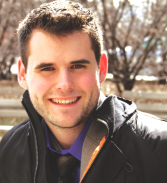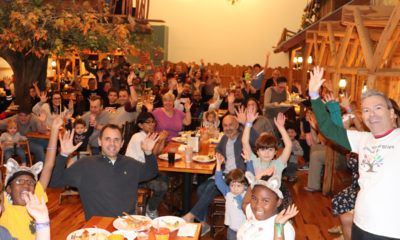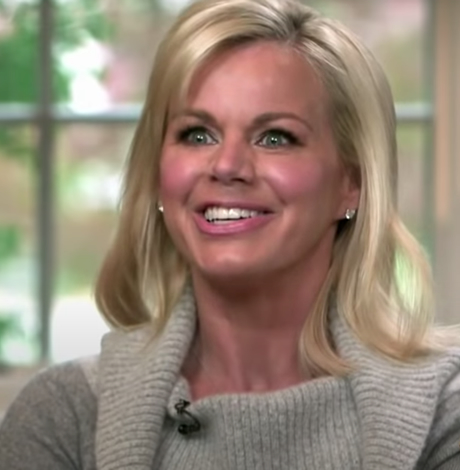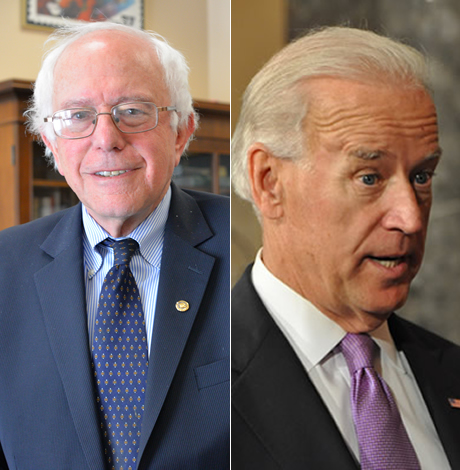Arts & Entertainment
‘That kid from YouTube’
Young Iowan releases a book about growing up with his ‘Two Moms’
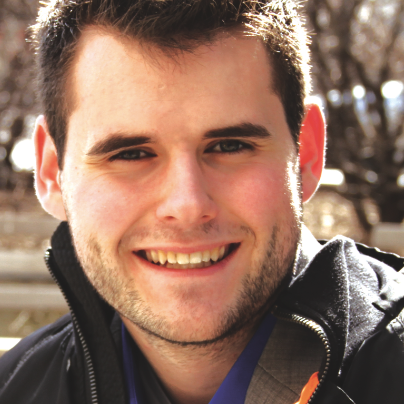
You know him as “That kid from YouTube,” but the now 20-year-old loving son of two moms, Zach Wahls hopes he will soon be “That kid from the New York Times Best Seller” list.
“We’re all keeping our fingers crossed — it would be great to be a New York Times best selling author before I can legally have a drink to celebrate that fact,” says former Eagle Scout Wahls about his two-week-old memoir “My Two Moms,” which has been in or near the Amazon top 100 best sellers all week.
A major boost for Wahl’s book came last week with his April 30 appearance on “The Daily Show with Jon Stewart,” on Comedy Central, which caused his book about being raised with Iowa values by a committed lesbian couple to jump up the Amazon’s 22nd spot.
Before he was on the “Daily Show” or Ellen DeGeneres, Wahls was a viral video sensation. Not because he did a weird impression or blew something up, but because he gave an incredible, moving testimony before the Iowa House Judiciary Committee, which was considering sending to Iowans a Constitutional amendment that would undo a state Supreme Court decision to extend marriage rights to same-sex couples.
In his testimony, Wahls discussed his excellent grades and outstanding athletic achievements, opening his own business, studying engineering at the University of Iowa and his time in the Scouts where his mother Terry, whom he calls “short mom,” was a den mother, while “tall mom” Jackie helped out with the Cub Scouts.
“If I was your son, Mr. Chairman, I believe I would make you very proud,” Wahls says in one memorable moment of the video.
But this all-American boy — who says he can’t drink, but does enjoy a cigar every once in a while, and would like to celebrate the success of his book with one if he makes the Times list — is now turning his 15 minutes of fame into a career of advocacy.
His book chronicles the struggles his family faced over the years — such as mother Terry’s struggle with M.S. — and the values that kept them together.
On the phone from Asheville, N.C., on Monday, the day before the vote on Amendment One, he has a lot to say.
WASHINGTON BLADE: The book is organized in an unusual way. Why?
ZACH WAHLS: The book has 14 chapters and two appendices. The first chapter is “Be Prepared,” which is the Boy Scouts’ motto, and the last chapter is “Do a Good Turn Daily,” which is the Scouts’ slogan. And the middle 12 chapters are named and oriented after and on a tenant of the scout law. And the scout law is a scout is trustworthy, loyal, helpful, friendly, courteous, kind, obedient, cheerful, thrifty, brave, clean and reverent.
Each chapter is an examination of that value, and how I learned it from my moms first, and how I learned it from the Boy Scouts, what it means to me, and what it means to the LGBT community in general.
BLADE: What was the “Daily Show” experience like?
WAHLS: It was the seven coolest minutes of my life.
And Jon, actually — unlike the host of literally every single other show — actually came to the green room backstage before the show and we had a nice little conversation. It was very clear that he had read the book, it was clear that he enjoyed the book and we just had a great little conversation.
I was standing in the green room, and what he does is that he starts talking very loudly as he’s walking toward you down the hall, so you can hear him coming, and he knows that you can hear him coming.
He’s just such a classy guy. Just 100 percent pure class.
I went to the rally to restore sanity last year, and it was the first time I’d ever ridden a Greyhound, actually. Like 24 hours on a Greyhound from Iowa to D.C. to the rally, and I’ve been watching the show since I was like 10. It was an amazing moment.
My moms and my sister were there, they had a great time too. It was great for sure.
BLADE: You seemed very confident and calm. Were you nervous?
WAHLS: Well he came backstage before, and that helped a lot. I was like almost about to have a nervous breakdown when he actually walked into the room. So that would have been what I was experiencing when I walked on stage had he not done that. So that was useful.
It was definitely a high stakes seven minutes. We managed to have a conversation and have a great time, and it was a blast.
But they told me before I went on, don’t make any jokes, and I kept trying not to.
BLADE: But you did! You did make a joke, and it landed well, the audience laughed!
WAHLS: I was having so much fun, I couldn’t help myself.
BLADE: What is the key to changing minds on the issue of rights for LGBT people?
WAHLS: The single most important task is continuing to systematically dismantle this myth of choice.
I think that’s why the YouTube video was so successful. I mean I never come out in the video and say I’m straight — and I’m hesitant to come to conclusions, because that’s something we shouldn’t do — but I think it is fairly clear in the video that I am a flaming straight man. So I think that the single most important development in any person’s movement on the continuum of opposition to LGBT rights to support for LGBT rights is the understanding that sexual orientation is not a choice. It is a pervasive misconception, and in many cases a pervasive lie that unfortunately many Americans do believe to be true.
But when you see people move beyond that misconception, it becomes very difficult for them to believe subsequently that homosexuality is immoral. Because if it’s not a choice, how could it be immoral? It’s much like historically saying someone is immoral or less than simply because of the color of their skin or the organs between their legs.
It used to be the belief that women were subservient to men and that blacks where inferior to whites, and that’s why — when it came to women’s suffrage or civil rights in the sixties — you had to address the underlying discrimination and the underlying beliefs before you could have the political solution that guaranteed equal rights, and that’s what we’re seeing here as well.
BLADE: One problem the LGBT movement often has with allies is commitment. Polling shows most Americans are with the LGBT activists on the big issues like employment, housing, benefits and even equal marriage is polling over 50 percent nationwide, but that doesn’t mean that supporters bother to leave the house to go vote for our rights in a special election like North Carolina’s. How do we inspire more allies to action?
WAHLS: To be clear, I don’t consider myself an ally. I might be straight cisgender man, but in my mind, I am a member of the LGBT community.
I know the last thing that anyone wants is to add another letter to the acronym, but we need to make sure as a movement we’re making a place for what we call “queer-spawn” to function and to be part of the community.
Because even though I’m not gay, I do know what its like to be hated for who I am. And I do know what its like to be in the closet, and like every other member of the LGBT community, I did not have a choice in this. I was born into this movement. I want to be explicitly clear first of all.
These fights affect me, they affect my family.
Now my best friend Nick, a straight guy, he’s an ally.
In terms of how we can have an upgraded commitment from straight allies, the fact is that if you look at the straight community, generally, there is a lot of excitement. And its not just support but excitement on this issue, because I think — in liberal politics generally — this is one of the few issues across the country in which we are not just standing our ground, but actually advancing as a progressive community.
Gay people can’t win this alone though. There aren’t enough people in the LGBT community itself to win this on their own. So in terms of what strategies are most effective? I think that making sure that you are illustrating these personal connections and engaging in this relationship building. Obviously, I come from a somewhat biased point of view, but if you have a close family member or a close friend who is openly LGBT, not only are you more likely to support the issue, but you’re more likely to act as well.
BLADE: There are lots of heartfelt YouTube videos out there with people explaining why LGBT rights matter. Why did yours blow up so big?
WAHLS: I know, its kind of crazy! Well, I think there are two factors. First is that it disrupted some expectations. When you think of whatever that stereotype of two women raising a kid is, a clean cut engineering student, Eagle Scout, entrepreneur — from Iowa to boot — probably isn’t that stereotype. And I think people enjoy seeing those stereotypes getting broken down.
I think more importantly and fundamentally, in that video, I hope you really do see me display my love for and commitment to my family. And I think it reminded a lot of people of their own love and their own commitment that they feel for their families. And I think that was really what struck home. The confidence, the passion, and at the end of the day, the love that was driving through.
BLADE: After three years of equal marriage, what are attitudes like across Iowa today on the issue of same-sex marriage?
WAHLS: Actually, The Onion had a great article, when marriage became legal, and the headline was “Hell opens up and swallows Davenport Iowa.” Obviously it was satire. The sky didn’t fall. Divorce rates are falling, straight people are still marrying straight people. They aren’t catching the gay. 92 percent of Iowans feel that they have not been affected by the Supreme Court ruling in any major way and 56 percent of Iowans oppose a Constitutional amendment to reverse the Supreme Court decision [that extended marriage rights to same-sex couples in Iowa].
It’s important to note that there is still a small disconnect between those who support same-sex marriage and those who would oppose its repeal. I think that this speaks to the Iowan ethos, which is the notion of “live and let live.” Even though they may not necessarily support same-sex marriage, they aren’t willing to take it away from couples like my parents.
BLADE: Until your video went viral on YouTube, yours was pretty much a quiet, average all-American family. How have your mothers handled all of the extra attention?
WAHLS: My moms have handled it really about as well as you can expect mothers to handle this kind of thing. It was definitely hard at some points for them. They see, obviously a lot of potential when you’re in the limelight to come under very sharp criticism and that happened.
There was a conservative radio host in Iowa who spent 20 minutes of his show going through my speech line by line by line accusing me of all kinds of rhetorical black magic. He seems to think I’m some kind of mastermind or something, which is quite flattering. But my moms hear that, and their protective instincts kick in, definitely.
They’ve been overwhelmingly proud, no doubt about it, but their primary concern is my safety. But they know I’m a grown man, I can handle myself — more often than not — so they’re mostly proud.
Although I do spend a lot less time at home, so I don’t see them or my sister nearly as frequently as I used to. And we’re all a little disappointed about that. My sister and I were both looking forward to the Avengers movie together for a long time, and she caved and saw it with “short mom,” which I was a little upset about. But I understand. I guess. [laughs]
Unlike her, I’m willing to wait til I get home to see it.
Sports
Bisexual former umpire sues Major League Baseball for sexual harassment
Brandon Cooper claims female colleague sexually harassed him
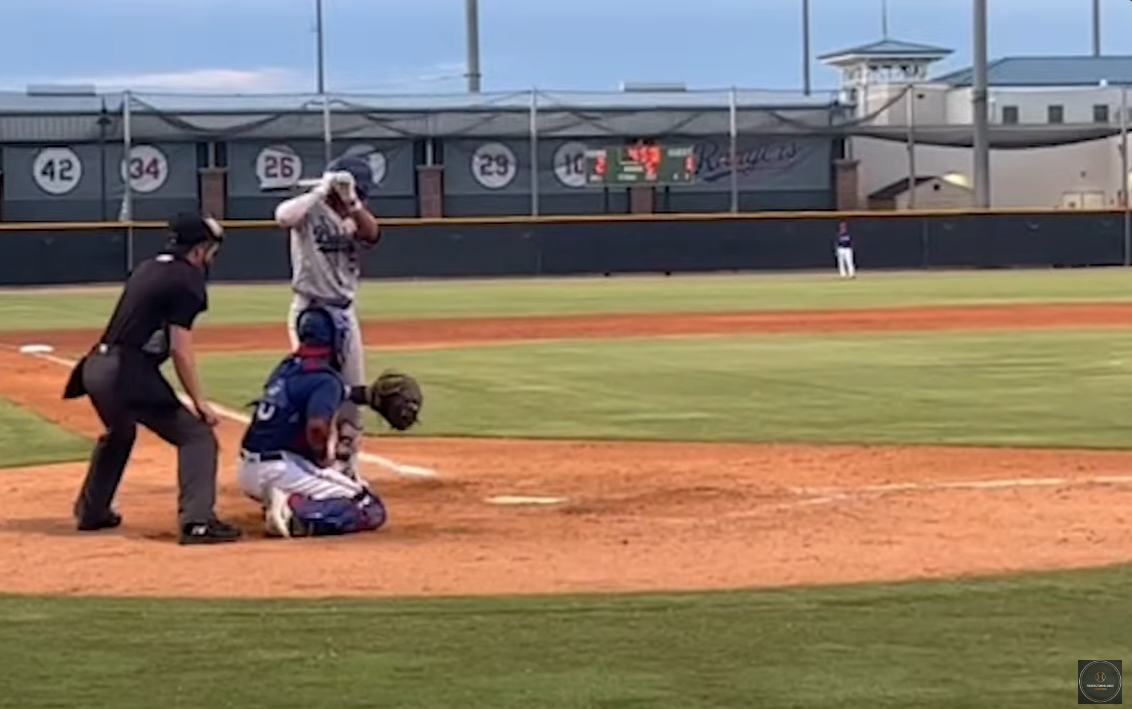
A fired former umpire is suing Major League Baseball, claiming he was sexually harassed by a female umpire and discriminated against because of his gender and his sexual orientation.
Brandon Cooper worked in the minor league Arizona Complex League last year, and according to the lawsuit he filed Wednesday in federal court in Manhattan, he identifies as bisexual.
“I wanted my umpiring and ability to speak for itself and not to be labeled as ‘Brandon Cooper the bisexual umpire,’” he told Outsports. “I didn’t want to be labeled as something. It has been a passion of mine to simply make it to the Major Leagues.”
But that didn’t happen. Instead of being promoted, he was fired. His suit names MLB and an affiliated entity, PDL Blue, Inc., and alleges he had endured a hostile work environment and wrongful termination and/or retaliation because of gender and sexual orientation under New York State and New York City law.
“Historically the MLB has had a homogenous roster of umpires working in both the minor and major leagues,” Cooper claims in his suit. “Specifically, to date there has never been a woman who has worked in a (regular) season game played in the majors, and most umpires are still Caucasian men. To try to fix its gender and racial diversity issue, defendants have implemented an illegal diversity quota requiring that women be promoted regardless of merit.”
Cooper claims former umpire Ed Rapuano, now an umpire evaluator, and Darren Spagnardi, an umpire development supervisor, told him in January 2023 that MLB had a hiring quota, requiring that at least two women be among 10 new hires.
According to the suit, Cooper was assigned to spring training last year and was notified by the senior manager of umpire administration, Dusty Dellinger, that even though he received a high rating in June from former big league umpire Jim Reynolds, now an umpire supervisor, that women and minority candidates had to be hired first.
Cooper claims that upon learning Cooper was bisexual, fellow umpire Gina Quartararo insulted him and fellow umpire Kevin Bruno by using homophobic slurs and crude remarks. At that time, Quartararo and Cooper worked on the same umpiring crew and being evaluated for possible promotion to the big leagues.
This season, Quartararo is working as an umpire in the Florida State League, one of nine women who are working as minor league umpires.
Cooper said he notified Dellinger, but instead of taking action against Quartararo, he said MLB ordered Cooper to undergo sensitivity training. According to his lawsuit, he was also accused of violating the minor league anti-discrimination and harassment policy.
Cooper’s suit says he met with MLB Senior Vice President of Diversity, Equity and Inclusion Billy Bean — who the Los Angeles Blade reported in December is battling cancer.
The lawsuit says at that meeting, Bean told the umpire that Quartararo claimed she was the victim, as the only female umpire in the ACL. Cooper said he told Bean Quartararo regularly used homophobic slurs and at one point physically shoved him. He also claims that he has video evidence, texts and emails to prove his claim.
But he said his complaints to Major League Baseball officials were ignored. His lawsuit said MLB passed him over for the playoffs and fired him in October. He said of the 26 umpires hired with Cooper, he was the only one let go.
Through a spokesperson, MLB declined to comment on pending litigation. Quartararo has also not publicly commented on the lawsuit.
a&e features
Eastern Shore chef named James Beard Finalist
Harley Peet creates inventive food in an inclusive space

In a small Eastern Shore town filled with boutiques, galleries, and the occasional cry of waterfowl from the Chesapeake, Chef Harley Peet is most at home. In his Viennese-inflected, Maryland-sourced fine-dining destination Bas Rouge, Peet draws from his Northern Michigan upbringing, Culinary Institute of America education, and identity as a gay man, for inspiration.
And recently, Peet was named a James Beard Finalist for Best Chef: Mid-Atlantic – the first “Best Chef: Mid-Atlantic” finalist representing the Eastern Shore.
Peet, after graduation from the Culinary Institute of America, took a position as sous chef at Tilghman Island Inn, not far from Bas Rouge. Falling in love with the Eastern Shore, he continued his passion for racing sailboats, boating, gardening, and fishing, and living his somewhat pastoral life as he opened Bas Rouge in 2016 as head chef, a restaurant part of the Bluepoint Hospitality group, which runs more than a dozen concepts in and around Easton, Md.
Coming from a rural area and being gay, Peet knew he had his work cut out for him. He was always aware that the service and hospitality industry “can be down and dirty and rough.”
Now as a leader in the kitchen, he aims to “set a good example, and treat people how I want to be treated. I also want to make sure if you’re at our establishment, I’m the first to stand up and say something.”
The Bas Rouge cuisine, he says, is Contemporary European. “I’m inspired by old-world techniques of countries like Austria, Germany, and France, but I love putting a new spin on classic dishes and finding innovative ways to incorporate the bounty of local Chesapeake ingredients.”
His proudest dish: the humble-yet-elevated Wiener Schnitzel. “It is authentic to what one would expect to find in Vienna, down to the Lingonberries.” From his in-house bakery, Peet dries and grinds the housemade Kaiser-Semmel bread to use as the breadcrumbs.
Peet works to support the LGBTQ community inside and outside of the kitchen. “I love that our Bluepoint Hospitality team has created welcoming spaces where our patrons feel comfortable dining at each of our establishments. Our staff have a genuine respect for one another and work together free of judgment.”
Representing Bluepoint, Peet has participated in events like Chefs for Equality with the Human Rights Campaign, advocating for LGBTQ rights.
At Bas Rouge, Peet brings together his passion for inclusion steeped in a sustainability ethic. He sees environmental stewardship as a way of life. Peet and his husband have lived and worked on their own organic farm for several years. Through research in Europe, he learned about international marine sourcing. Witnessing the impacts of overfishing, Peet considers his own role in promoting eco-friendly practices at Bas Rouge. To that end, he ensures responsible sourcing commitments through his purveyors, relationships that have helped create significant change in how people dine in Easton.
“I have built great relationships in the community and there’s nothing better than one of our long-standing purveyors stopping in with a cooler of fresh fish from the Chesapeake Bay. This goes especially for catching and plating the invasive blue catfish species, which helps control the species’ threat to the local ecosystem.
Through his kitchen exploits, Peet expressed a unique connection to another gay icon in a rural fine-dining restaurant: Patrick O’Connell, of three Michelin starred Inn at Little Washington. In fact, Peet’s husband helped design some of O’Connell’s kitchen spaces. They’ve both been able to navigate treacherous restaurant-industry waters, and have come out triumphant and celebrated. Of O’Connell, Peet says that he “sees [his restaurants] as canvas, all artistry, he sees this as every night is a show.” But at the same time, his “judgment-free space makes him a role model.”
Being in Easton itself is not without challenges. Sourcing is a challenge, having to either fly or ship in ingredients, whereas urban restaurants have the benefit of trucking, he says. The small town “is romantic and charming,” but logistics are difficult – one of the reasons that Peet ensures his team is diverse, building in different viewpoints, and also “making things a hell of a lot more fun.”
Reflecting on challenges and finding (and creating) space on the Eastern Shore, Peet confirmed how important it was to surround himself with people who set a good example, and “if you don’t like the way something is going … move on.”

Team DC, the umbrella organization for LGBTQ-friendly sports teams and leagues in the D.C. area, held its annual Night of Champions Awards Gala on Saturday, April 20 at the Hilton National Mall. The organization gave out scholarships to area LGBTQ student athletes as well as awards to the Different Drummers, Kelly Laczko of Duplex Diner, Stacy Smith of the Edmund Burke School, Bryan Frank of Triout, JC Adams of DCG Basketball and the DC Gay Flag Football League.
(Washington Blade photos by Michael Key)



















-

 State Department2 days ago
State Department2 days agoState Department releases annual human rights report
-

 Maryland4 days ago
Maryland4 days agoJoe Vogel campaign holds ‘Big Gay Canvass Kickoff’
-

 Politics3 days ago
Politics3 days agoSmithsonian staff concerned about future of LGBTQ programming amid GOP scrutiny
-

 The White House1 day ago
The White House1 day agoWhite House debuts action plan targeting pollutants in drinking water

